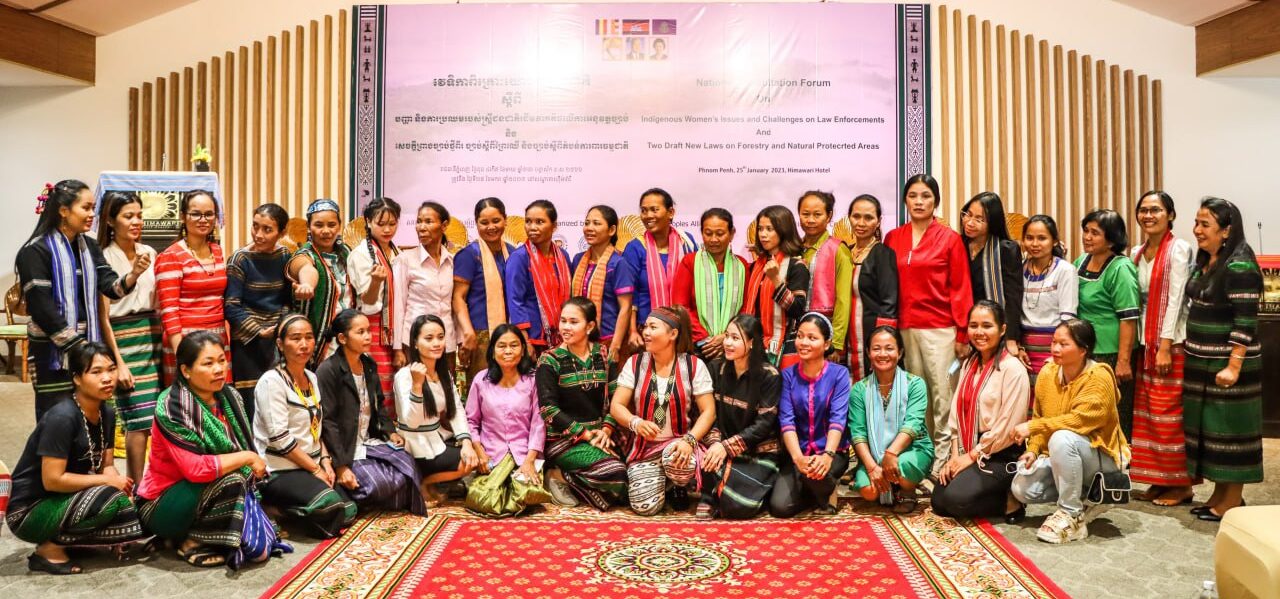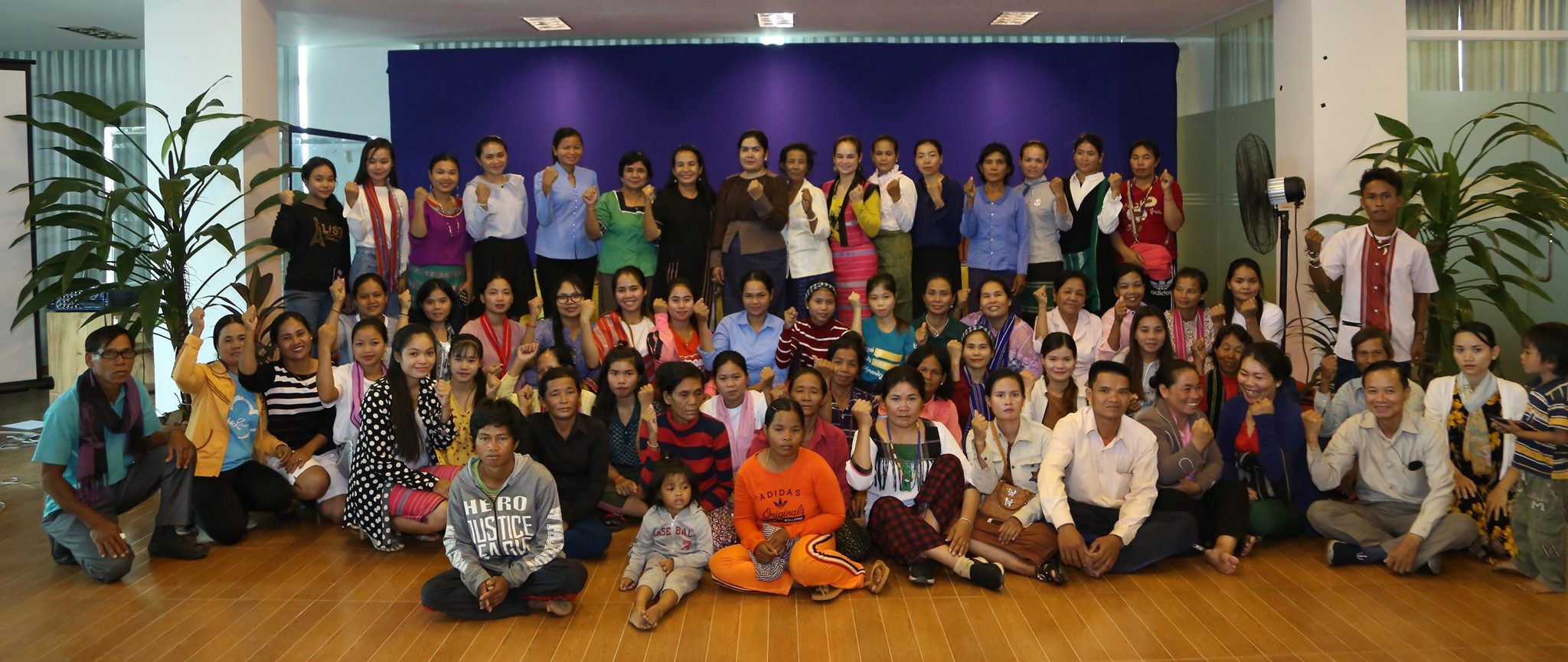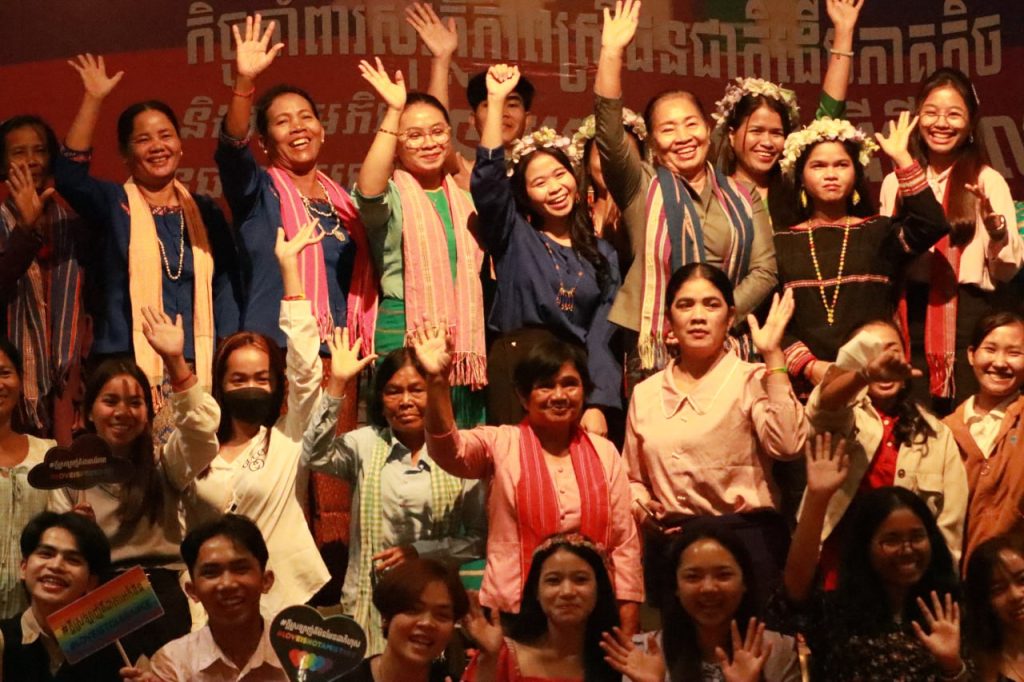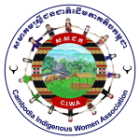
CIWA was established by 37 Indigenous women from diverse ethnic backgrounds who were passionate about uplifting women. They share a vision of creating a brighter future for women today and tomorrow, driven by innovative ideas and a deep commitment to women's well-being.
The Cambodia Indigenous Women Association (CIWA) was decided by all members of the 66 indigenous women in Cambodia to be created in February 2019.
Indigenous women actively participate and contribute in protection and promote the cultural identity, traditions, language, and identity for the next generation. Day by day, indigenous women get even more burden for their family and community matters such as taking care of the family and kids, food, money, education and even the whole family. However, those heavy roles, responsibilities and contribution often been ignored by the male counterpart and society as a whole.


Indigenous women also have been taking various efforts to manage, protect collective land, forest natural resources, including negotiating with relevant mandated government ministries to find solutions and demanding in order to have their rights on those resources, which was violated. Many indigenous women rights defenders are empowered and confident to actively contribute to land, forest, biodiversity and natural resource management and protection, but in returned, they received lots of threats and intimidation from local authorities and the court. Those resources has been destroyed by the investment of private companies in the areas without free, prior and infom1ed consent from the indigenous peoples. The indigenous women and indigenous peoples have been doing various advocacy and campaigns to visualize those issues for solutions, those include cultural festival and others.
As above context, the 37 indigenous women individual from various ethnic background such as Tampoun, Brao, Kui, Por, Chong, Bunong and Jarai come together to have its first meeting in Siem Reap on 02 September 2018 to discuss challenges and issues faced by the indigenous women and identify strategic activities in order to work and address those issues themselves. Those include the protection of land, forest, natural resources and the indigenous women representation to voice out their demand for solutions. Another meeting was held on February 2019 participated by 66 indigenous women and as a result, the group decided to have official name for themselves called “Cambodia Indigenous Women Working Group”. It becomes one of the well-functioned and historical indigenous women movement in the country, while later decided by all members of the indigenous women in Cambodia to name it “Cambodia Indigenous Women Association (CIWA). It established based on indigenous women’s common issues, challenges and proposed solution include the impacts of climate change, land, forest, culture; human rights defenders received death and judicial thread, gender-based violence and crime and access to health and education. These intersecting challenges limits indigenous women’s access to participation in decision-making positions while reflecting the work that has to be done at all levels towards the substantive fulfilment of indigenous women’s rights. CIWA successfully registered as an association with the Ministry of Interior on 09 May 2022..
Vision
Indigenous women and girls have ownership and self-determination on land and natural resource management effectively with strong economic and being able to conserve and protect their rights to land, culture, tradition, and identity sustainably, living with dignity within the society of Cambodia.
Mission
To enhance respect, protection, value and effective support of activities of indigenous women through strengthening their sense of rights, laws, and ownership over land, natural resource management, economic development and traditional culture and identity conservation.
Core Value
✅ Solidarity and collective interests
✅ Transparency and honesty
✅ Gender equity and equality among the indigenous peoples in Cambodia.
✅ Neutrality: no affiliate to any political party or religions and independence.
